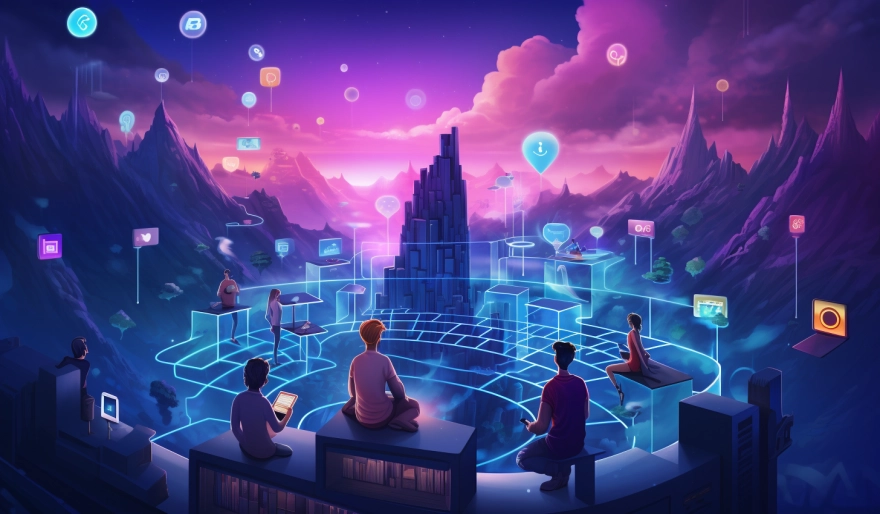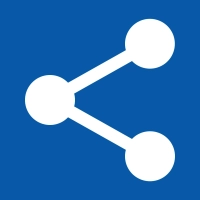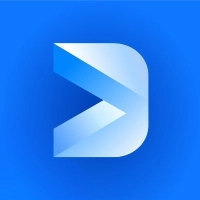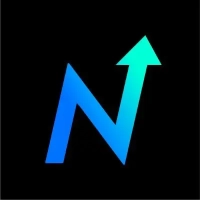The Future is Here: Decentralized Social Networks Revolutionize Digital Freedom
In an era where social media platforms dominate our digital interactions, concerns about privacy, data ownership, and censorship have become increasingly prevalent. However, a new wave of decentralized social networks powered by Web3 and blockchain technology is revolutionizing the digital landscape. These distributed networks prioritize user empowerment, community governance, and privacy-first principles, creating a paradigm shift in social innovation. November 16, 2023 16:21
The Limitations of Traditional Social Networks
While traditional social networks have provided us with connections and opportunities for self-expression, they come with limitations that are increasingly being questioned in today's digital landscape. One of the most significant concerns is the lack of control over our personal data, as these centralized platforms have access to and often monetize our information without our explicit consent. The Cambridge Analytica scandal is just one example of the risks associated with entrusting our data to large corporations.
Additionally, traditional social networks are vulnerable to censorship and manipulation. Algorithms and policies can favor certain content, limiting the diversity of information and perspectives we are exposed to. This creates echo chambers and hinders the healthy exchange of ideas necessary for a thriving society.
Moreover, the centralized nature of these platforms means that decisions about community guidelines, data handling, and feature updates are ultimately made by a select few, leaving users with little say in shaping the platforms they use every day.
In light of these limitations, decentralized social networks offer an alternative that empowers users, prioritizes privacy, and promotes a more inclusive and transparent digital space. Stay tuned as we explore the principles and innovative technologies that underpin these decentralized networks, and how they are redefining the future of social media.
Decentralized Social Networks: A Revolutionary Solution
Decentralized social networks are a revolutionary solution to the limitations presented by traditional platforms. These networks prioritize user control over personal data, ensuring that individuals have ownership and agency over the information they share. By utilizing blockchain and peer-to-peer technology, decentralized social networks remove the need for a central authority or corporation to moderate and control content.
In these networks, the power to create and moderate communities is distributed among all users, promoting a more inclusive and democratic approach to social media. Community guidelines are established through consensus and public input, allowing for a diverse range of voices and perspectives to be heard. This fosters a more open and free exchange of ideas, reducing the risk of censorship and echo chambers.
Additionally, decentralized networks offer enhanced privacy features, such as end-to-end encryption, ensuring that user data is protected from prying eyes. With the rise of surveillance and data breaches, this level of privacy is increasingly crucial for users seeking a more secure online environment.
Stay tuned as we delve deeper into the workings of decentralized social networks, exploring their potential to reshape the digital landscape and empower individuals in the age of digital freedom.
Advantages of Decentralized Social Networks
Decentralized social networks offer numerous advantages over their centralized counterparts. Let's delve further into these benefits to understand why they are revolutionizing the digital landscape.
1. Data Ownership and Control: In traditional social media platforms, users often surrender their personal information to corporations without full transparency or control. With decentralized social networks, individuals have ownership and agency over their data. They can choose what information to share, who can access it, and how it is used, thereby reclaiming their digital sovereignty.
2. Enhanced Security and Privacy: Centralized platforms are susceptible to data breaches and surveillance, putting users' personal information at risk. Decentralized social networks utilize advanced encryption techniques and distribute data across multiple nodes, making it more secure against hacking attempts. This enhanced security ensures that users can engage in online activities without compromising their privacy.
3. Censorship Resistance: Centralized platforms have the authority to censor or moderate content based on their own policies and external pressures. Decentralized networks, on the other hand, operate with a democratic structure that involves community consensus. This reduces the risk of censorship, allowing for a more diverse range of opinions to be presented and discussed openly.
4. User Empowerment: Decentralized social networks empower individuals to have a direct say in how the platform is governed and operated. Rather than being dictated to by a central authority, users have the power to create and moderate communities, establish guidelines, and participate in decision-making processes. This democratized approach fosters a sense of ownership and inclusivity, giving users the ability to shape their online experiences.
As we continue to explore the potential of decentralized social networks, we will dive deeper into each of these advantages and examine how they contribute to a more secure, transparent, and user-centric digital environment. Stay tuned for our next blog post as we discuss real-world examples and success stories of decentralized social networks that are transforming the way we socialize online.
Key Players in the Decentralized Social Network Revolution
The rise of decentralized social networks has seen the emergence of several key players who are leading the charge in revolutionizing the digital landscape. These platforms are transforming the way we connect and interact with each other online, fostering a more secure, democratic, and user-centric environment.
One prominent player in the decentralized social network revolution is Mastodon. Built on open-source software, Mastodon offers an alternative to traditional social media platforms by allowing users to create their own communities, called "instances," which can be linked together in a federated network. This decentralized structure ensures that individual instances maintain control over their data and moderation policies, while still being able to connect and interact with users from other instances.
Another player making waves in the decentralized space is Diaspora. Launched in 2010, Diaspora presents itself as a privacy-focused social network that allows users to maintain full control over their personal information. It works by utilizing "pods," which are self-hosted servers that individuals or groups can run, and these pods are interconnected to create a decentralized network. This distributed architecture helps to safeguard user data and prevent third-party surveillance.
Steem is another noteworthy platform that has gained traction in the decentralized social network revolution. Built on blockchain technology, Steem rewards users for creating and curating content on its social media platform. By leveraging a decentralized network of nodes, Steem ensures transparency in content moderation and ensures that users have a stake in the decision-making process.
These are just a few examples of the key players in the decentralized social network revolution. As we delve further into this topic, we will explore the unique features and functionalities offered by each platform, and examine how they are reshaping the digital landscape. Stay tuned for our next blog post as we dive deeper into the exciting world of decentralized social networks.
Transitioning to a Decentralized Social Network
Transitioning to a decentralized social network may seem daunting, but it is feasible and offers numerous benefits for users seeking more control over their online experience. The first step is researching different platforms and understanding their functionalities. By exploring Mastodon, Diaspora, and Steem as mentioned in the previous section, users can find a platform that aligns with their preferences.
Once a platform is chosen, creating an account and exploring the features will be the next step. Users will discover a diverse range of communities, engaging content, and unique features that set decentralized networks apart from traditional social media platforms. It is important to note that while the user base may be smaller initially, the decentralized nature allows for organic growth and a more personalized experience.
Connecting with users on decentralized platforms can be done by following individual instances or pods, engaging in meaningful conversations, and expanding one's network. The decentralized nature encourages collaboration and the sharing of ideas within and across different instances or pods.
While decentralized social networks may be relatively new, they present exciting opportunities for those looking to reclaim control over their digital lives. In the next blog post, we will dive deeper into the distinctive features and functionalities of Mastodon, Diaspora, and Steem, shedding light on why these platforms are at the forefront of the decentralized social network revolution. Get ready to embark on a more secure, democratic, and user-centric online journey.
Overcoming Challenges and Ensuring User Adoption
While the transition to decentralized social networks offers many advantages, there are still challenges to be addressed in order to ensure widespread user adoption. One of the main hurdles is the relatively smaller user base compared to mainstream social media platforms. However, this can also be seen as an opportunity for creating a more intimate and engaged community.
In addition, educating users about the benefits of decentralized networks is crucial. Many people may be unaware of the risks associated with centralized platforms, such as data breaches and lack of privacy. By highlighting the advantages of decentralized networks, such as data ownership, increased privacy, and resistance to censorship, users can be encouraged to make the switch.
Furthermore, interoperability between different decentralized platforms is an important aspect to consider. While each platform has its own unique features, efforts should be made to enable seamless communication and sharing between various networks. This will help in creating a cohesive decentralized ecosystem that caters to different user preferences.
To ensure user adoption, decentralized social networks should also focus on providing user-friendly interfaces and features that rival those of mainstream platforms. A smooth and intuitive user experience will make it easier for users to transition and navigate the new network.
In the next blog post, we will explore these challenges in more detail and discuss potential solutions for promoting wider adoption of decentralized social networks. By overcoming these obstacles, we can pave the way for a future where individuals have greater control over their online presence and digital freedom is truly realized. Stay tuned!
Safeguarding Digital Freedom: The Role of Decentralized Social Networks
As we delve deeper into the world of decentralized social networks, it becomes evident that they play a crucial role in safeguarding digital freedom. Traditional social media platforms have been criticized for their susceptibility to censorship, data breaches, and privacy concerns. In contrast, decentralized networks offer a viable solution by empowering users with control over their own data and fostering a more open and transparent digital landscape.
One of the key advantages of decentralized networks is their resistance to censorship. With no central authority controlling the content, users have the freedom to express themselves without fear of being silenced or marginalized. This feature is particularly important in countries where freedom of speech is restricted or where certain political or social views are suppressed.
Additionally, decentralized networks prioritize data ownership and privacy. Unlike centralized platforms, where personal data is stored on servers controlled by the platform, decentralized networks distribute data across a network of nodes, making it more difficult for hackers or unauthorized entities to access and exploit personal information.
Moreover, decentralized networks promote an inclusive and diverse online environment. By removing intermediaries and giving equal opportunities to all users, these networks foster a level playing field for content creators, businesses, and individuals. This aspect encourages a vibrant and competitive ecosystem that thrives on innovation and creativity.
In the upcoming blog post, we will explore how decentralized networks are revolutionizing media and content creation, as well as the potential implications they have for industries like journalism and entertainment. Together, we can embrace the future of digital freedom and empower individuals to take control of their online presence. Stay tuned for more insights and revelations!
Conclusion: Empowering Users in the Digital Age
In conclusion, decentralized social networks are revolutionizing the digital landscape by empowering users and safeguarding digital freedom. Traditional social media platforms have faced criticism for their censorship, data breaches, and privacy concerns, while decentralized networks offer a viable solution.
The resistance to censorship provided by decentralized networks allows users to freely express themselves without fear of being silenced or marginalized. This is especially important in countries where freedom of speech is restricted. Furthermore, decentralized networks prioritize data ownership and privacy, making it difficult for hackers or unauthorized entities to exploit personal information.
Additionally, decentralized networks promote inclusivity and diversity by removing intermediaries and providing equal opportunities for everyone. This fosters a vibrant ecosystem that thrives on innovation and creativity.
As we move forward, it is important to recognize the potential implications of decentralized networks on industries such as journalism and entertainment. These networks have the power to reshape how media and content creation are approached, giving individuals more control over their online presence.
In embracing the future of digital freedom, we must continue to explore and embrace the possibilities that decentralized social networks bring. By empowering users in the digital age, we can create a more open, transparent, and inclusive digital world for all.
User Comments (0)
Popular DeSo Apps










